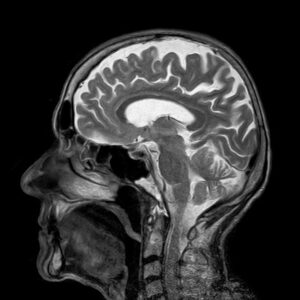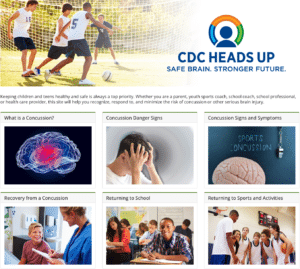No Fee Unless You Win
No Fee Unless You Win
Suffering a head injury from a car accident can change your life in an instant. Whether you were rear-ended, t-boned, or involved in a high-speed collision, even a seemingly mild impact can result in a traumatic brain injury (TBI). These injuries often go undiagnosed in the early stages, especially when symptoms don’t appear right away.
If you or a loved one are dealing with the effects of a head injury, it’s not only critical to get medical help–finding a lawyer after a TBI may be the most important step in protecting your long-term health and financial future.
How do you handle a head injury after a car accident? First, seek immediate medical attention, even if symptoms seem minor. Then, contact an experienced personal injury lawyer like Gage Mathers.
A skilled attorney can help ensure you’re properly diagnosed, connect you with the right specialists, and pursue compensation for medical bills, lost wages, and future care. Head injuries often come with hidden costs, and having a legal advocate who understands the full impact of a TBI can make all the difference.
According to the National Institute of Neurological Disorders and Stroke, a traumatic brain injury (TBI) is defined as dysfunction caused by a jolt or blow to the head. Not all blows or jolts to the head cause a TBI.
Read on to learn more about head injury after a car accident, or take our TBI Quiz to see if you have symptoms consistent with at traumatic brain injury.
There are two broad types of head injuries: Penetrating and non-penetrating.
Most car accidents cause a closed head injury, which is another name for a non-penetrating TBI. The impact force from the car accident causes:
This sudden movement can cause:
The head injury after a car accident causes changes in the brain that lead to symptoms that may affect how a person thinks, feels, acts, and sleeps.

In general terms, TBIs are classified according to the severity and mechanism of injury:
After an accident, it can be hard to tell the severity of a head injury. That is why it is important to get checked out by a medical provider. Even if you have mild symptoms. People with a mild TBI or concussion need to be seen by a health care provider because the effects of a mild TBI or concussion can be serious.
 How Can I Tell if my Head Injury Is Mild or Severe?
How Can I Tell if my Head Injury Is Mild or Severe?The severity of your head injury after a car accident will be determined by your health care providers. They will check your symptoms and run tests to evaluate the nature of your head injury.
All TBIs cause some type of symptoms, including physical issues, trouble thinking, memory problems, and social or emotional issues. The severity of your head injury causes different symptoms. Here are some differences between mild and moderate/severe head injuries.
Mild TBI symptoms are common after a car accident. They can vary widely from person to person. Symptoms also change as your brain recovers from injury. Importantly, mild TBI symptoms can develop right away, or they may develop a few days or even a week after you were hurt.
Common physical symptoms of a mild TBI include:
Common thought or memory symptoms of a mild TBI include:
Common social or emotional symptoms of a mild TBI include:
As you can see, the symptoms of a mild TBI overlap symptoms of stress, anxiety, and other conditions. Therefore, it is important to get evaluated by a health care provider soon after the car crash.
The symptoms of a moderate or severe TBI are similar to a mild TBI, but are usually more serious. Symptoms may change over time.
Common physical symptoms of a moderate to severe TBI include:
Common thought or memory symptoms of a moderate to severe TBI include:
Common social or emotional symptoms of a moderate to severe TBI include:
If you were in a car accident, always get evaluated by a health care provider. Make sure you tell your provider about all your symptoms, including any head pain or headaches. Head injuries can feel like other medical conditions, so do not downplay symptoms that are consistent with a brain injury. Regardless of the severity, a head injury after a car accident is a serious matter.

If you have a head injury from a car accident, contact one of our car accident lawyers to make sure you are being properly evaluated and that your legal rights are being protected. Call (602) 258-0646 for a free consultation.
Although the consequences of a TBI might not be immediately apparent right after an accident, the symptoms could develop later. Debilitating headaches or memory loss might arise in the days or weeks following an accident. As a result, the financial damages of a traumatic brain injury could be substantial if they limit your ability to work. The advice of a personal injury lawyer may help you prepare a comprehensive insurance claim against the responsible party that takes into account the long-term costs of a brain injury.
If you have a head injury after a car accident and you do not give your brain sufficient time to heal, you have an increased risk for second-impact syndrome (e.g., a life-threatening condition from a second head injury before the brain is healed), early Alzheimer’s disease, chronic traumatic encephalopathy, seizures, movement disorders, depression and anxiety, and a shorter life expectancy.
Individuals may be able to overcome a head or brain injury by resting or taking pain medication. However, in severe cases, one may require surgery to treat a brain bleed, cracked skull, or other serious condition. Those who experience significant trauma may need to participate in rehabilitation programs to learn how to walk, talk or regain other skills that they had before getting hurt.
A head injury after a car accident may significantly reduce a person’s quality of life. In some cases, individuals who experience head injuries may not be able to work or live on their own. They might also have difficulty participating in activities that they enjoyed prior to getting hurt.
If the head injury from a car accident was due to another party’s negligence, you may be able to obtain compensation for lost wages, medical bills, or other damages. An experienced car accident attorney could help you pursue the maximum compensation you deserve.
Personal Injury & Accident Lawyers in Arizona
Speak to one of our personal injury attorneys and learn more about the legal options for your accident claim.

The lead researcher, a professor of aerospace and mechanical engineering, used data collected from TBI investigations of animals and football players to build a computer model of how motor vehicle crashes affect the brain. The professor anticipates that this approach could be translated into a mobile tool to help paramedics evaluate crash victims for TBI. The proposed tool would allow paramedics to enter information about crash speed and other variables, such as vehicle weight and victim age, and immediately receive an assessment about the potential damage done to victim’s brain.
According to the Centers for Disease Control and Prevention, TBI causes 30% of injury deaths nationwide. The immediate diagnosis and swift treatment of a TBI improves outcomes for crash victims and could reduce the death toll of motor vehicle crashes.
We know that it is not uncommon for vehicle accident victims to strike their heads on steering wheels, dashboards, or windows. This can lead to concussions and other forms of traumatic brain injuries. Blows to the head can also cause skull fractures, headaches, and other head or neck pain. Spinal cord injuries may also result. If someone suffers a head injury after a car accident, the brain injury symptoms after a car accident can lead to catastrophic consequences. This is why you should always be evaluated by a health care provider following an accident, regardless of severity, and consult with an experienced personal injury lawyer.

For Arizona Cyclists, the Statistics are Grim. Your Rights are Not. The recent report highlighted by Yahoo News, naming Arizona as one of the most dangerous states for cyclists, is a sobering remind...
Posted by Joseph D'Aguanno
The leading causes of death in the United States are: Heart Disease Cancer Accidents Covid Stroke Chronic Lower Respiratory Disease Alzheimer's Disease Diabetes K...
read morePosted by Joseph D'Aguanno
There are hidden dangers lurking in our healthcare system. The chilling reality is medical malpractice thrives in secrecy. What happens when deadly doctors are allowed to keep practicing, despite...
read moreIf you or a loved one has been seriously injured, please fill out the form below for your free consultation or call us at (602) 258-0646
2525 E Arizona Biltmore Cir #A114, Phoenix, AZ 85016
get directions